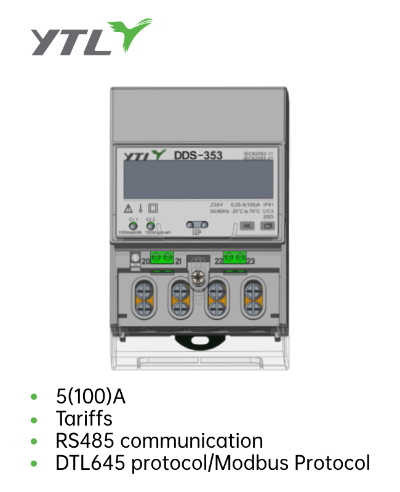 As technology continues to advance, so too does the way we monitor and measure our energy usage. The introduction of smart electricity meters has revolutionized the way we manage our energy consumption, providing us with real-time data and insights into our usage patterns. But how exactly does a smart electricity meter work?
As technology continues to advance, so too does the way we monitor and measure our energy usage. The introduction of smart electricity meters has revolutionized the way we manage our energy consumption, providing us with real-time data and insights into our usage patterns. But how exactly does a smart electricity meter work?
At its core, a smart electricity meter is a device that measures the amount of electricity consumed by a household or business and communicates this information to the energy provider. Unlike traditional meters, which require manual readings and are often only checked once a month, smart meters constantly monitor and transmit data, providing a more accurate and up-to-date picture of energy usage.
The operation of a smart electricity meter can be broken down into a few key components. above all, the meter itself is equipped with advanced sensors and circuitry that can measure the flow of electricity in real-time. This data is then processed by the meter's internal computer, which calculates the amount of energy being used and stores this information for future analysis.
In order to transmit this data to the energy provider, smart meters are equipped with communication modules that allow them to connect to a wireless network. This allows the meter to send regular updates on energy usage to the provider, ensuring that both the consumer and the energy company have an accurate understanding of usage patterns.
One of the key advantages of smart meters is their ability to provide consumers with detailed insights into their energy usage. By accessing a secure online portal, consumers can view real-time data on their electricity consumption. This allows them to identify any areas of high usage and make informed decisions about how to reduce their energy consumption. This level of transparency can empower consumers to take control of their energy usage and make more sustainable choices.
From an energy provider's perspective, smart meters offer a range of benefits. By receiving regular updates on energy usage, providers can better predict demand and allocate resources more effectively. This can result in a more efficient and reliable energy supply, ultimately benefiting both the provider and the consumer.
In addition to their monitoring and communication capabilities, smart meters also have the potential to facilitate the integration of renewable energy sources into the grid. By providing detailed data on energy usage, smart meters can help providers better manage the variability of renewable energy sources such as solar and wind power. This ultimately supports the transition to a more sustainable energy system.
In conclusion, smart electricity meters represent a significant advancement in the way we measure and manage our energy consumption. By leveraging advanced technology and real-time data, these devices offer a range of benefits for both consumers and energy providers. Ultimately, they contribute to a more efficient and sustainable energy system. As technology continues to evolve, smart meters are likely to play an increasingly important role in shaping the future of energy management.

 English
English 简体中文
简体中文






.png?imageView2/2/w/500/h/500/format/png/q/100)

.png?imageView2/2/w/500/h/500/format/png/q/100)





